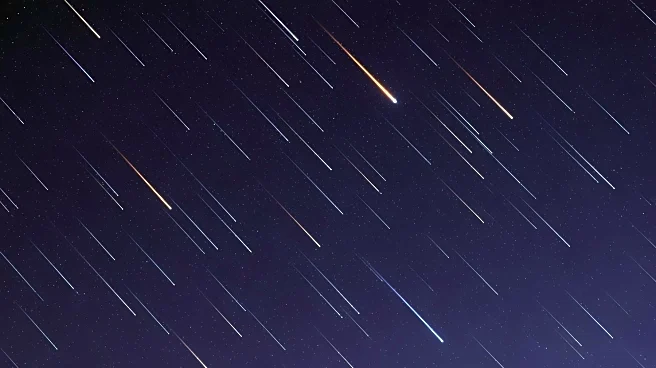What's Happening?
The Leonids meteor shower, one of the more reliable annual meteor showers, is reaching its peak this week. The shower is active from early November to early December, with the most intense activity expected
on the night of November 16-17. The meteors are named after the constellation Leo, as they appear to emanate from the region of the 'lion's head,' an asterism known as the sickle due to its shape. This celestial event provides a unique opportunity for stargazers to witness a natural light show in the night sky.
Why It's Important?
Meteor showers like the Leonids offer a chance for the public to engage with astronomy and appreciate the natural wonders of the universe. Such events can inspire interest in science and space exploration, potentially influencing educational pursuits and career choices in these fields. Additionally, meteor showers are a reminder of the dynamic nature of our solar system, as they are caused by debris from comets entering Earth's atmosphere. This particular shower is known for producing bright meteors, making it a popular event for both amateur and professional astronomers.










